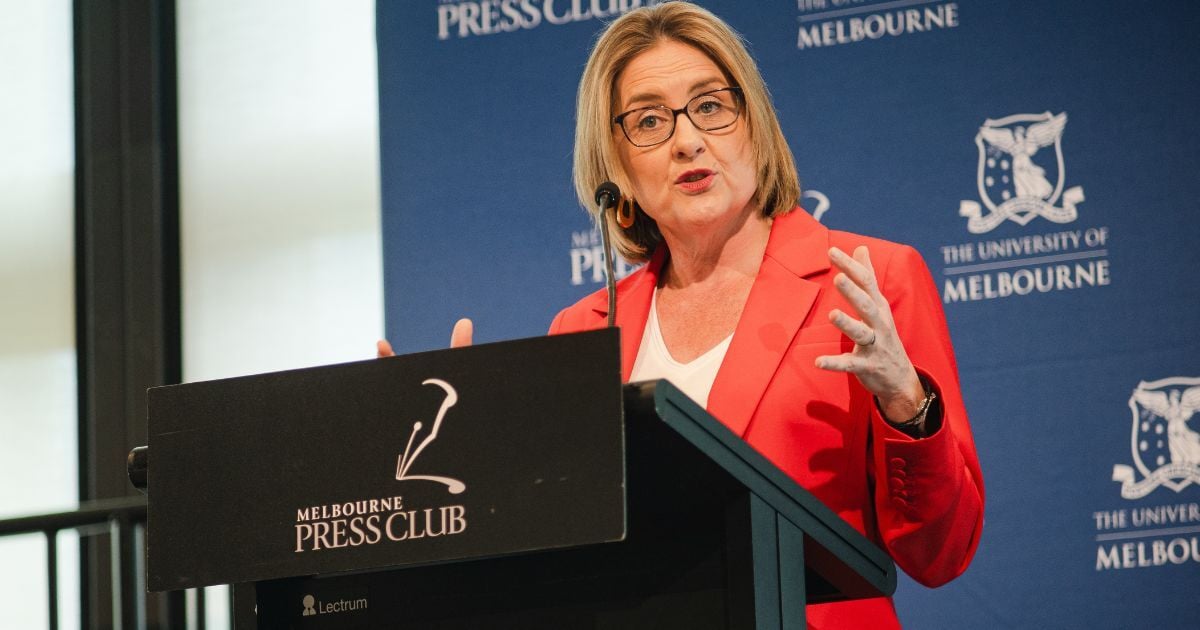“Fires don’t stop because we’re fatigued”: A new recruit gears up for West Vic bushfire season
“If [it] turns out how it is being predicted, I believe we will be attending long duration fires.”
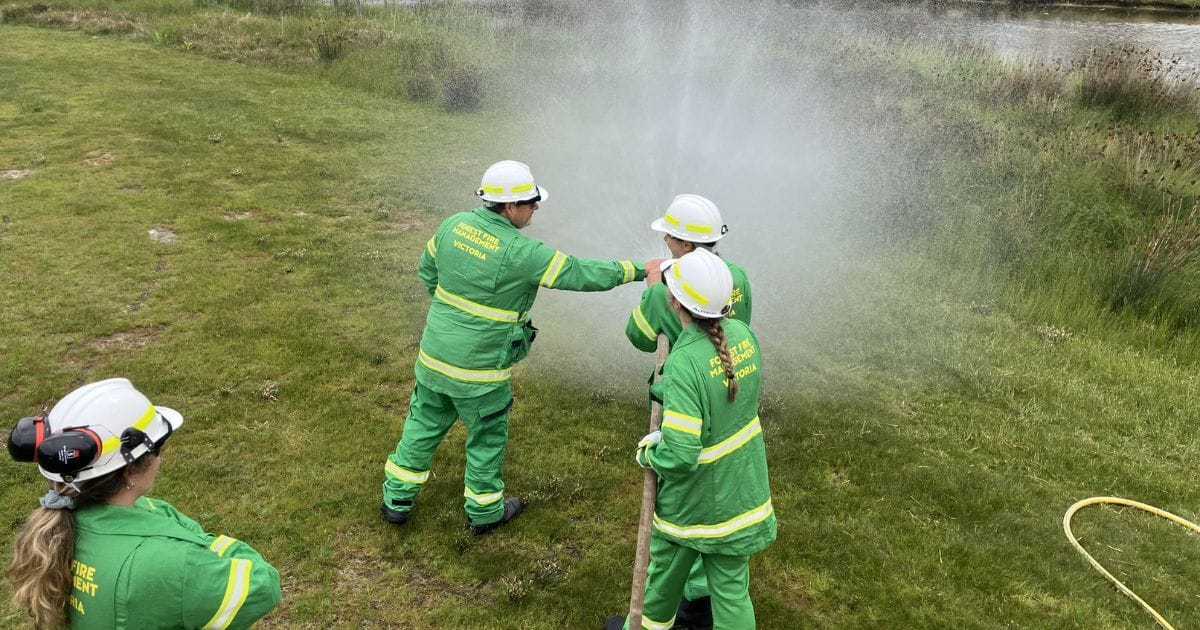
Dozens of freshly trained seasonal firefighters from western Victoria are among Forest Fire Management Victoria’s (FFMVic) 636 newest recruits.
📝 The job description: Seasonal firefighters are employed full-time for a fixed term, typically between October and May, to work alongside the organisation’s permanent firefighters.
The hundreds of new recruits - including 39 in the Grampians region - have been undertaking intensive training camps across the state.
With a higher bushfire risk predicted for the season, the training camps prepare seasonal firefighters to respond to emergencies and minimise bushfire impact.
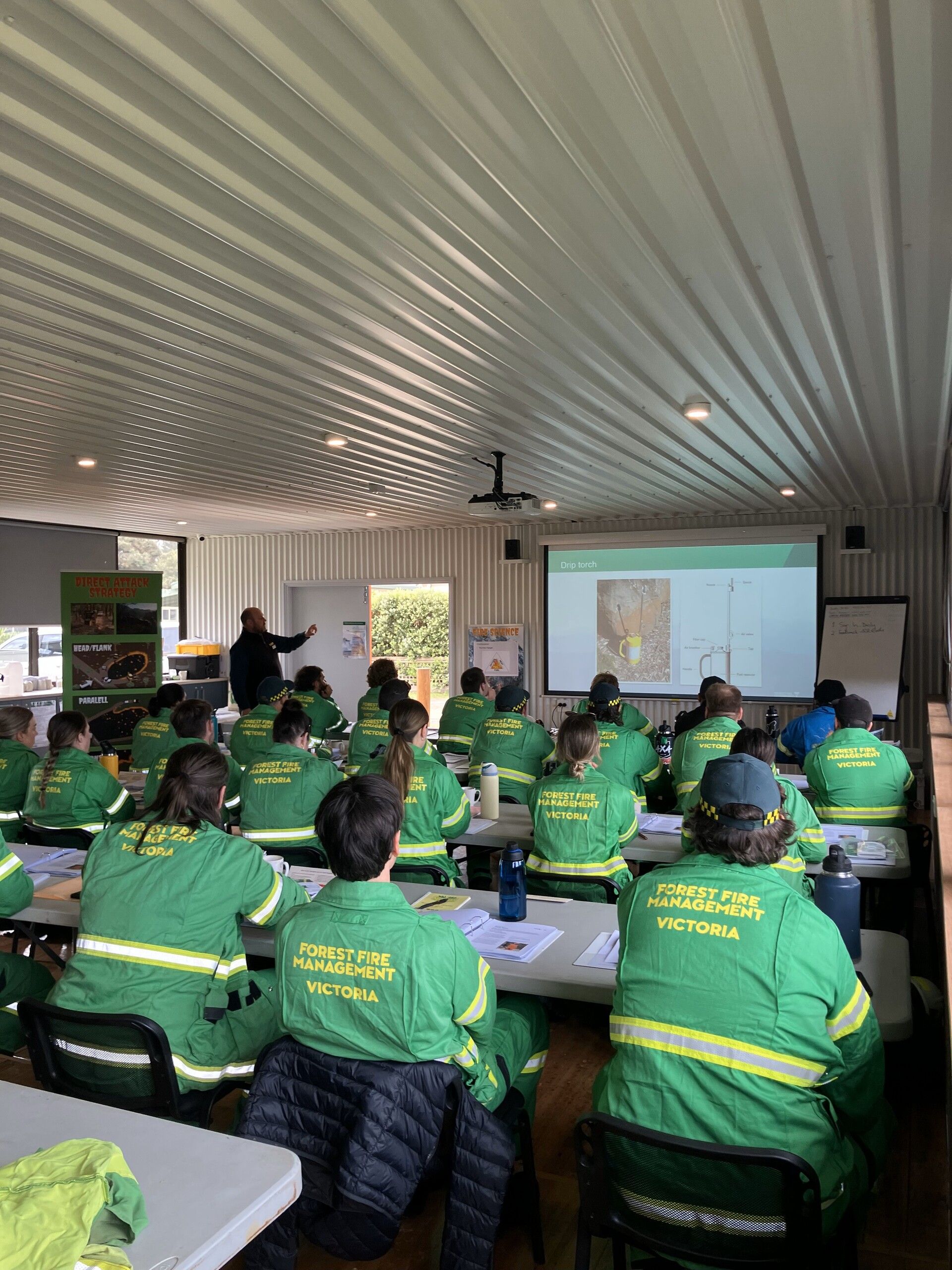
Image: FFMVic
❓What’s involved? Recruits complete four weeks of training, covering fire behaviour, safety and survival techniques, fire suppression and working around aircraft, as well as driving specialised vehicles.
FFMVic firefighters work with Country Fire Authority volunteers to complete planned burns, run occasional joint training courses and share equipment and other resources.
🚒 Hands-on experience: Liam Kavanagh, a first year seasonal firefighter, is doing the training camp in Narrawong, near Portland.
So far, Kavanagh said the training camp has offered thorough general firefighter training.
“As we were near the coast, we discussed how wind affects fire behaviour, therefore it was a great visual example, watching and experiencing high winds,” he told the Brolga.
“I have learned a lot more about the bush and how it burns, more specifically the types of grasses and bushes that burn due to the natural oils and elements they contain.”
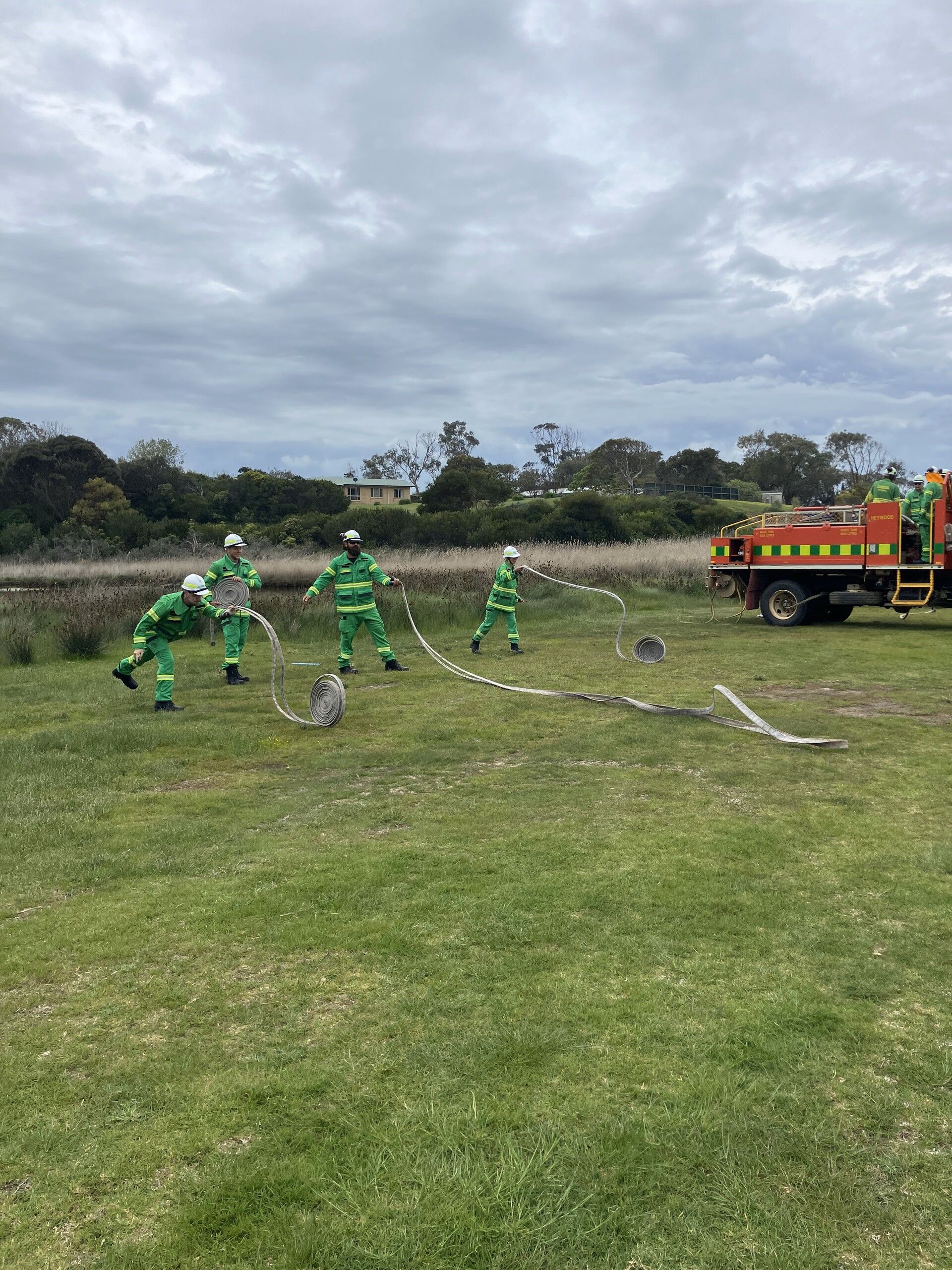
Image: FFMVic
👨🚒 New challenges: The new recruit explained that while the practical tasks were taxing in their own way, the real obstacle was the theory.
“The most challenging part of the training has been the online, inside component. As a very outdoor person spending a couple of weeks in the classroom was challenging for me,” Kavanagh said.
After completing his training and starting on the tools, Kavanagh said he was most looking forward to responding to bushfires and requests for assistance, as well as conducting fuel reduction through ecological burnoffs.
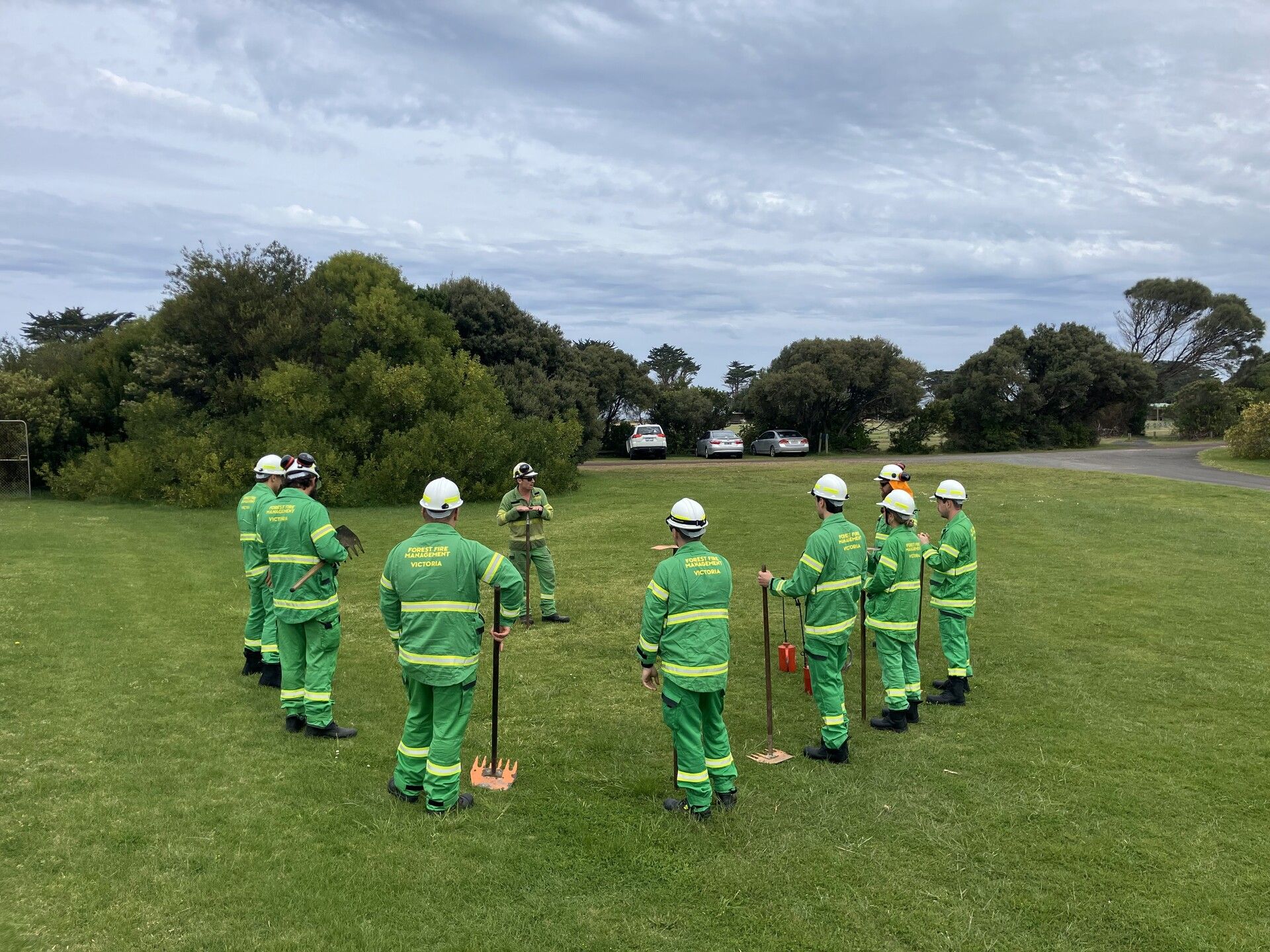
Image: FFMVic
🔥 Increased risk: Acting deputy chief fire officer Michael Condon said in a recent statement the organisation is preparing for a higher-risk summer after dealing with more than 100 bushfires across the Grampians last year.
Kavanagh said he expects keeping up with the intensity of fire to be the toughest part of the job.
“Fires don’t stop because we are fatigued. If the season turns out how it is being predicted, I believe we will be attending long duration fires,” he said.
“I feel the training, the organisation and its people have prepared me as best as possible for the upcoming fire season.”
